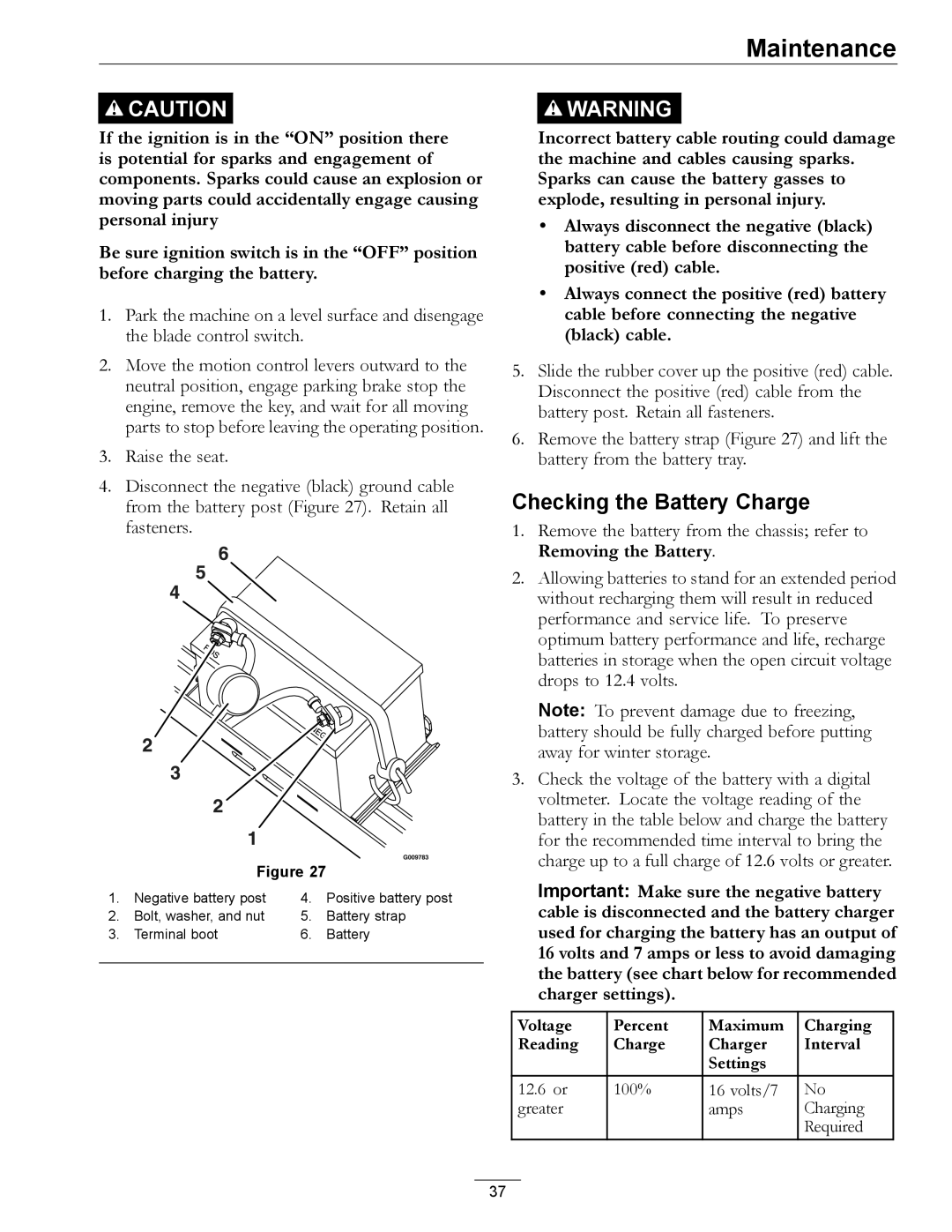
Maintenance
![]()
![]() CAUTION
CAUTION
If the ignition is in the “ON” position there is potential for sparks and engagement of components. Sparks could cause an explosion or moving parts could accidentally engage causing personal injury
Be sure ignition switch is in the “OFF” position before charging the battery.
1.Park the machine on a level surface and disengage the blade control switch.
2.Move the motion control levers outward to the neutral position, engage parking brake stop the engine, remove the key, and wait for all moving parts to stop before leaving the operating position.
3.Raise the seat.
4.Disconnect the negative (black) ground cable from the battery post (Figure 27). Retain all fasteners.
Figure 27
1. | Negative battery post | 4. | Positive battery post |
2. | Bolt, washer, and nut | 5. | Battery strap |
3. | Terminal boot | 6. | Battery |
|
|
|
|
![]()
![]() WARNING
WARNING
Incorrect battery cable routing could damage the machine and cables causing sparks. Sparks can cause the battery gasses to explode, resulting in personal injury.
•Always disconnect the negative (black) battery cable before disconnecting the positive (red) cable.
•Always connect the positive (red) battery cable before connecting the negative (black) cable.
5.Slide the rubber cover up the positive (red) cable. Disconnect the positive (red) cable from the battery post. Retain all fasteners.
6.Remove the battery strap (Figure 27) and lift the battery from the battery tray.
Checking the Battery Charge
1.Remove the battery from the chassis; refer to Removing the Battery.
2.Allowing batteries to stand for an extended period without recharging them will result in reduced performance and service life. To preserve optimum battery performance and life, recharge batteries in storage when the open circuit voltage drops to 12.4 volts.
Note: To prevent damage due to freezing, battery should be fully charged before putting away for winter storage.
3.Check the voltage of the battery with a digital voltmeter. Locate the voltage reading of the battery in the table below and charge the battery for the recommended time interval to bring the charge up to a full charge of 12.6 volts or greater.
Important: Make sure the negative battery cable is disconnected and the battery charger used for charging the battery has an output of 16 volts and 7 amps or less to avoid damaging the battery (see chart below for recommended charger settings).
Voltage | Percent | Maximum | Charging |
Reading | Charge | Charger | Interval |
|
| Settings |
|
12.6 or | 100% | 16 volts/7 | No |
greater |
| amps | Charging |
|
|
| Required |
37
